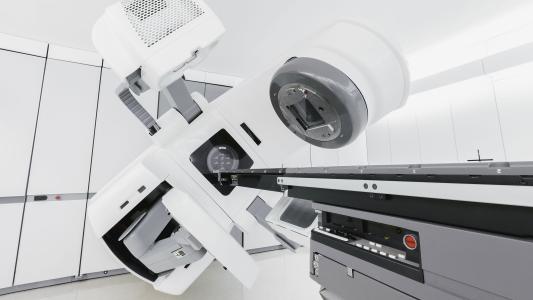In April, Oxford University launched a combined Phase 1/2 trial of its coronavirus vaccine, announcing an ambitious goal to have millions of doses ready by September.
Now, the first data from that trial is in, and the promising results suggest that development of the Oxford COVID-19 vaccine is right on track.
Oxford COVID-19 Vaccine Trial
On July 20, Oxford published the results of its Phase1/2 vaccine trial, known as “ChAdOx1 nCoV-19,” in The Lancet.
The trial involved more than 1,000 healthy adults, under the age of 55, each of whom received either the Oxford COVID-19 vaccine or a placebo shot. (Ten volunteers also received a booster shot four weeks after the initial dose.)
Within two weeks, the vaccine prompted a T cell response in all of the volunteers who received it — this means their immune systems had generated a type of white blood cell capable of helping fight a SARS-CoV-2 infection.
Four weeks after the shot, 90% of volunteers who got the Oxford COVID-19 vaccine had produced neutralizing antibodies, capable of stopping the coronavirus from infecting cells. All ten participants who got a booster shot generated neutralizing antibodies.
“We saw the strongest immune response in the 10 participants who received two doses of the vaccine, indicating that this might be a good strategy for vaccination,” Andrew Pollard, the trial’s chief investigator, said in a news release.
None of the trial participants experienced any serious adverse health effects from the vaccine, but about 60% did develop some side effects, such as fever or headaches.
Dual Immunity: T Cells and Antibodies
The Oxford COVID-19 vaccine isn’t the first to prompt the creation of both T cells and antibodies, and this dual immune response may be key to the development of an effective coronavirus vaccine.
Recent studies have reported that neutralizing antibodies seem to disappear in some people after a couple of months, suggesting they might provide only temporary protection to the coronavirus.
The key question everyone wants to know is, ‘Does the vaccine work?’
Andrew Pollard
However, other studies have found T cells in people nearly two decades after they overcame a similar coronavirus infection — SARS — suggesting the cells might provide longer lasting protection against the new coronavirus than antibodies alone.
Still, right now all we know is that the Oxford COVID-19 vaccine triggers the production of both — we don’t know how long they last or what kind of protection they might provide.
Huge Phase 3 trials (or a human challenge trial) will be needed to answer those questions, and Oxford already has multiple Phase 3 trials underway in Brazil, South Africa, and the U.K. It also plans to launch a Phase 3 trial involving 30,000 adults in the U.S. in August, as well as a pediatric study.
“(T)he key question everyone wants to know is does the vaccine work, does it offer protection… and we’re in a waiting game,” Pollard told the BBC.
We’d love to hear from you! If you have a comment about this article or if you have a tip for a future Freethink story, please email us at tips@freethink.com.






